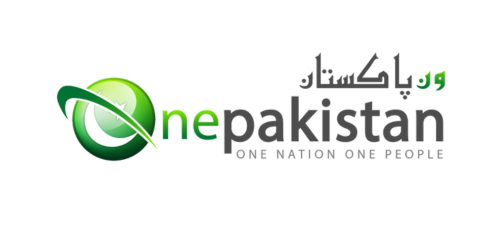Depression is one of the most common mental health conditions worldwide, affecting millions of people every year. While therapy and antidepressant medicines help many patients, there is a group known as treatment-resistant depression, where traditional methods fail to bring relief. For such cases, scientists and doctors have turned to new solutions like brain implant for depression.
This innovative approach, also called deep brain stimulation (DBS), is showing promise in improving mood and reducing symptoms in patients who had lost hope in conventional treatments. Brain implants are still in the research stage in many countries, but their potential has created a new wave of discussion in the field of mental health innovation.
What Are Brain Implants
A brain implant is a small medical device that works through electrodes placed in specific regions of the brain. These implants are connected to a device that sends mild electrical signals to regulate abnormal brain activity. The method is scientifically called deep brain stimulation (DBS).
The idea behind brain implants is not entirely new. DBS has already been used to treat conditions such as Parkinson’s disease and epilepsy. Now, researchers are testing it for mental health disorders, especially depression that does not respond to medication or psychotherapy.
Brain implants are usually targeted at brain circuits related to mood and emotional control, such as the subcallosal cingulate and amygdala. By stimulating these areas, the device helps balance neurotransmitters like serotonin and dopamine, which are crucial for emotional well-being.
How Brain Implants Work for Depression
In patients with severe or treatment-resistant depression, the brain implant acts like a regulator for abnormal neural activity. The device delivers controlled pulses of electricity to targeted brain regions, which helps reset faulty mood circuits and improves emotional stability.
Studies show that patients who received brain implants experienced improvements in mood, motivation, and daily functioning. For many, it was the first time in years that they felt relief from constant sadness and hopelessness.
Unlike medications that work throughout the entire body, brain implants are precise and localized, meaning they directly target the brain regions linked with depression. This makes them an exciting option for people who have tried multiple therapies without success.
Benefits of Brain Implants
Brain implant therapy has given new hope to patients suffering from treatment-resistant depression. The biggest advantage is that it directly targets the brain circuits responsible for mood regulation, instead of affecting the entire body like traditional medication.
Patients who received deep brain stimulation for depression reported:
-
Significant improvement in mood and emotional stability
-
Better motivation and daily functioning
-
Long-term relief from depressive episodes
-
Improved quality of life for those who had failed multiple treatments
Brain implants can also reduce dependence on antidepressants, which often cause side effects such as weight gain, fatigue, and sleep problems. For many patients, brain implants have been the first treatment that truly changed their outlook on life.
Challenges and Risks
Despite promising results, brain implants for depression also come with challenges and risks. Since it is a surgical procedure, patients face the normal risks of surgery such as infection, bleeding, or device complications.
There are also ethical concerns about altering brain activity and whether it could affect personality or behavior beyond depression treatment. Moreover, brain implants are expensive and not widely available, making them difficult to access for most patients.
Possible side effects include:
-
Mood swings or sudden emotional changes
-
Headaches or discomfort at the implant site
-
The need for continuous medical monitoring and device adjustments
These challenges show why brain implants are currently limited to clinical trials and select cases rather than being a common treatment.
Future of Brain Implants in Mental Health
The future of brain implant technology looks promising. Researchers are exploring advanced versions of implants that can adapt to a patient’s brain activity in real time. Some projects even aim to use artificial intelligence (AI) to make brain stimulation more precise and personalized.
Beyond depression, clinical trials are investigating whether brain implants can also help with conditions such as anxiety, PTSD, and obsessive-compulsive disorder (OCD). If successful, these devices could transform the entire field of psychiatry.
While more research is still needed, experts believe that brain stimulation therapy for depression may become an important part of future mental health treatments, especially for patients who do not respond to conventional care.
Final Words
Brain implants represent one of the most innovative approaches in modern psychiatry. For patients with treatment-resistant depression, where medicines and therapy do not work, a brain implant for depression can offer real hope. By targeting specific brain circuits, this technology helps balance mood signals and improves overall quality of life.
Although there are risks and challenges, including cost, accessibility, and ethical debates, ongoing research is making the treatment safer and more effective. With advancements in deep brain stimulation and integration of AI in brain implants, the future of mental health care looks brighter.
In short, brain implants may not yet be a common solution, but they have the potential to change how depression and other psychiatric disorders are treated in the coming years.
Frequently Asked Questions (FAQs)
Q1: What is a brain implant for depression
A brain implant is a medical device placed in specific brain regions to regulate mood through mild electrical stimulation. It is mainly used for patients with severe or treatment-resistant depression.
Q2: How does deep brain stimulation help in depression
Deep brain stimulation sends controlled electrical signals to mood-related brain circuits like the subcallosal cingulate. This helps reset abnormal activity and improves emotional stability.
Q3: Is a brain implant safe
Brain implants are generally safe but, like any surgery, they carry risks of infection, bleeding, or device malfunction. Continuous medical monitoring is required.
Q4: Who needs a brain implant for depression
This treatment is recommended only for patients with severe or treatment-resistant depression who have not improved with therapy or medication.
Q5: What are the risks of brain implants
Possible risks include mood swings, headaches, surgical complications, and high treatment costs. Ethical concerns about altering brain activity are also debated.
Q6: What is the future of brain implants in mental health
Researchers are working on advanced implants with AI that can adapt to brain activity. Future applications may include treating anxiety, PTSD, and OCD in addition to depression.




